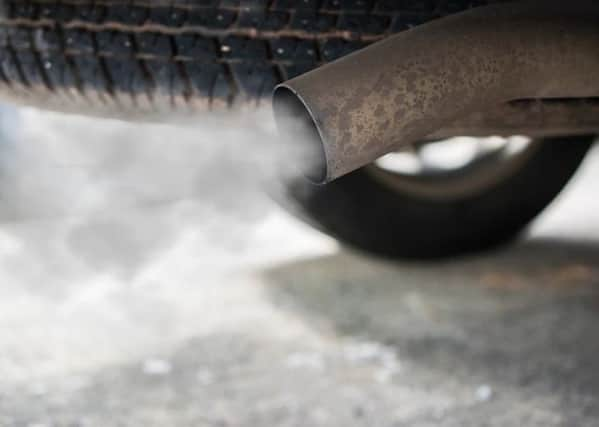Diesel fumes making lung diseases more antibiotic resistant


University scientists have found for the first time the black carbon in air pollution - tiny specks of unburnt fuels - can change the way bacteria behaves.
The bacteria which cause respiratory infections are directly affected by air pollution - increasing the potential for infection and changing the effectiveness of antibiotic treatment.
Advertisement
Hide AdAdvertisement
Hide AdThis has implications for the treatment of infectious diseases, which are known to be increased in areas with high levels of air pollution.
And they warned high pollution in major cities and urban areas will have a serious impact on people’s health unless efforts are made to clean up this toxic smog.
Associate Professor in Microbial Genetics Dr Julie Morrissey said: “Our research could initiate an entirely new understanding of how air pollution affects human health.
“It will lead to enhancement of research to understand how air pollution leads to severe respiratory problems and perturbs the environmental cycles essential for life.”
Advertisement
Hide AdAdvertisement
Hide AdThe four year study, published in journal Environmental Microbiology, looked at how air pollution affects the bacteria living in our bodies, specifically in the nose, throat and lungs.
A key component of pollution is black carbon, which is produced through the burning of fossil fuels such as diesel, biofuels, and biomass.
The research found the pollutant changes the way in which bacteria grow, which could affect how they survive on the lining of our respiratory tracts and how well they are able to hide from, and combat, our immune systems.
Dr Morrissey from the Department of Genetics and lead author of the study, said: “This work increases our understanding of how air pollution affects human health.
Advertisement
Hide AdAdvertisement
Hide Ad“It shows that the bacteria which cause respiratory infections are affected by air pollution, possibly increasing the risk of infection and the effectiveness of antibiotic treatment of these illnesses.
Research associate Dr Shane Hussey who worked on the project said: “Everybody worldwide is exposed to air pollution every time they breathe.
“It is something we cannot limit our exposure to as individuals, but we know that it can make us ill.
“So we need to understand what it is doing to us, how it is making us unhealthy, and how we might be able to stop these effects.”
Advertisement
Hide AdAdvertisement
Hide AdThe researchers focused on two human bacteria, Staphylococcus aureus and Streptococcus pneumoniae, which are both major causes of respiratory diseases and exhibit high levels of resistance to antibiotics.
They found black carbon alters the antibiotic tolerance of Staphylococcus aureus and increases the resistance of communities of Streptococcus pneumoniae to penicillin, the front line treatment of bacterial pneumonia.
The results also showed black carbon caused Streptococcus pneumoniae to spread from the nose to the lower respiratory tract, which is a key step in development of disease.
Professors Julian Ketley, Professor of Bacterial Genetics said: “Urbanisation in megacities with extreme levels of air pollution are major risk factors for human health in many parts of the world.
Advertisement
Hide AdAdvertisement
Hide Ad“Our research seeks to lead and participate in international research consortia of biologists, chemists, clinician, social scientists and urban planners.
“Together we will investigate how increasing urbanisation promotes infectious disease.”
The World Health Organisation describes air pollution as the “largest single environmental health risk” and is believed to cause seven million deaths per year around the world.
The UK and many other countries around the world continue to breach the recommended pollution limits set by the World Health Organisation.